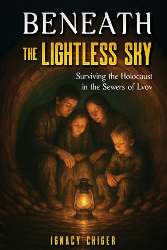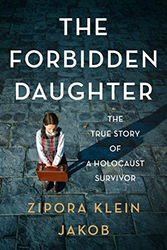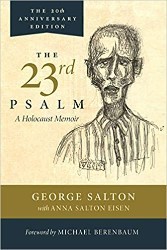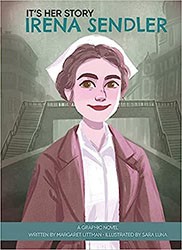Julie Masis has woven her grandparents’ Holocaust memories, her parents’ lives in the post-war Soviet Union, and her own research and reflections into a short, engaging memoir.
The title of Masis’s book, How My Grandfather Stole a Shoe, points to its most important character, her grandfather, Shlomo. When we first meet Shlomo, he is celebrating his hundredth birthday in a Massachusetts senior living home, a seeming miracle given the horrific ordeal he and his fellow Moldovan Jews underwent during the war.
The author evokes her grandfather by retelling the war-time stories he told her, adding anecdotes from her visits to him in his home. Shlomo lacks the eloquence of a Primo Levi or Elie Weisel, and he does not seek explanations for the Holocaust. On the other hand, Shlomo shot and killed two German soldiers in combat, a fact that Masis learned not from him, but from her research in Soviet military archives. This also distinguishes him from those more celebrated survivors who are renowned mainly for their writing.
Thanks in part to Masis’s clear and simple prose, Shlomo emerges as a strikingly normal man despite the horrors he endured. We learn that he worries that Masis is still single in her early thirties. He assures her that he can help her find a husband. (One can hear in that offer the confidence of a man who repeatedly found solutions to life-threatening crises.) Later, he tells Masis that he loves her “because you come to visit me,” offering her a pair of sunglasses as a reward for her fidelity.
Masis is a journalist, and she reports the atrocities and cruelty of the Nazis and their allies without adding commentary or expressing outrage. She recognizes that the details deliver an impact without embellishment. The author writes that she rejected the idea of creating a novel out of these events, but she has a novelist’s eye for telling details. For example, she relates that her grandmother fell in love with Shlomo when he offered her a steadying hand, and, on accepting it, she exclaimed, “You have such warm hands.”
Regarding the atrocities, two of them stand out for their depravity. In one, Romanian soldiers threw their Jewish comrades out of speeding trains. In the other, a Nazi officer liked to drive his motorcycle with a Jewish boy roped to the rear, stopping when the victim had been dragged to death.
Given the voluminous collection of Holocaust memoirs, it is fair to ask of any new offering, what makes this book fresh enough to read? How My Grandfather Stole A Shoe offers three distinguishing features that make it a worthwhile read. First, in recounting the fate of the Jews of Moldova, it covers one of the less well-known Jewish communities. And, the book includes haunting pencil illustrations by the late Felix Lembersky, which add to the narrative’s emotional punch. Finally, Masis weaves in stories of her parents and herself, down to the present, which convey the sense of a chain of Jewish life connecting past and present that is so strong not even the Holocaust can break it.
Adding to that sense is the fact that Masis journeyed back to the places where great evils were inflicted on her grandparents. She finds that the Jews are largely gone, but antisemitism lingers nevertheless. Sadly, that is the other unbreakable chain linking past and present.
Alex Troy worked at two Jewish schools, teaching history at one and serving as Head of the other. Before becoming an educator, he worked as a lawyer and investor for thirty years. He recently published his first novel, The Academy Of Smoke And Mirrors: A Boarding School On The Brink. Alex is a graduate of Yale, Harvard Law, and St. John’s College.





